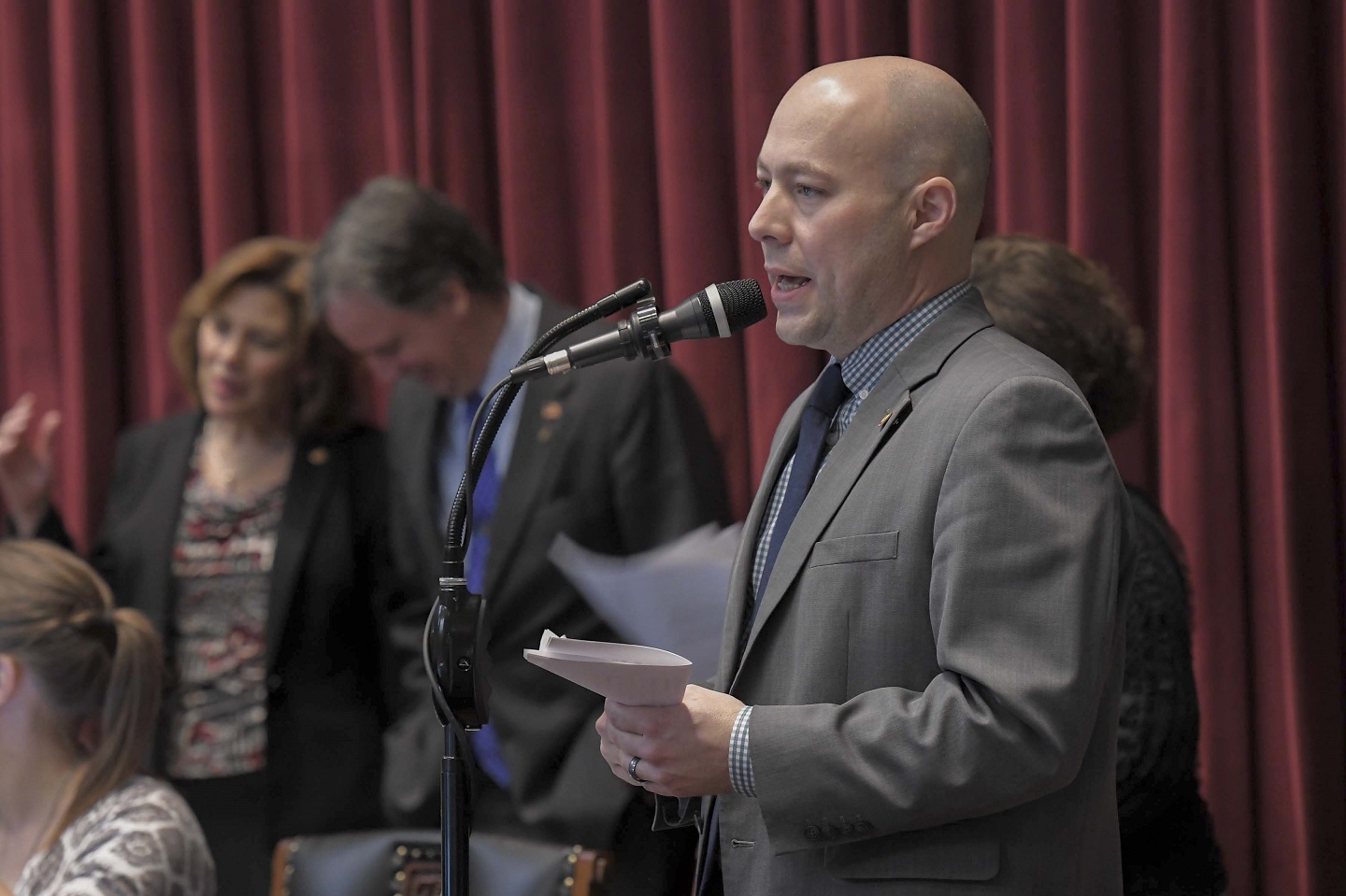The House’s Special Committee on Criminal Justice will meet next week and again in August to develop potential legislation dealing with civil asset forfeiture and racial profiling by law enforcement.

The hearings have been spurred by the 2018 Vehicle Stops Report from the Office of Attorney General Eric Schmitt (R), and a report from State Auditor Nicole Galloway (D) on civil asset forfeiture.
Committee Chairman Shamed Dogan (R-Ballwin) cited Galloway’s report which said $9.1-million in cash and property was seized in 2018, compared to $7.1-million in 2017. He called the findings a “call to action” for the committee and the legislature to balance Missourians’ rights against law enforcement’s duty to protect the public.
The traffic stops report showed the largest racial disparity in vehicle stops in state history, with African-Americans 91-percent more likely to be stopped by law enforcement than whites.
Dogan said the findings are frustrating, especially since that disparity has grown from about 27-percent in the 2000 report.
“I don’t think it makes sense to try to say that that increase in the disparity is because African-Americans are driving worse,” said Dogan. “One of the explanations, to me, that make sense is just that law enforcement, for whatever reason, is wasting a lot of their time and resources on people who haven’t done anything wrong because they’re in search of people who have done something wrong, and that’s just a waste of their time and energy.”
Dogan said the disparity continues in the statistics on vehicle searches.
“Once the vehicles are stopped, they search the vehicles of African-Americans and Hispanics more than they do whites, but they’re less likely to find guns, or drugs, or other contraband on blacks or Hispanics than they are on whites, so again this is a mismatch of resources,” said Dogan. “Why are you searching people of those racial categories more when they’re less likely to be carrying something illegally?”
St. Louis representative Steven Roberts is the top Democrat on the Committee on Criminal Justice. He said there could be several legislative solutions for racial profiling.

Roberts hopes the hearings this summer will help the committee flesh out the language of House Bill 444, which proposed banning the confiscation of assets from a person who hasn’t been convicted of a crime.
Dogan said he wants anyone with something to say about these issues to weigh in, and that includes members of the public, prosecutors, and law enforcement. He said past efforts to pass legislation dealing with these issues have run into resistance, particularly from law enforcement groups, and he wants to get past that.
The Special Committee’s hearings take place Wednesday, July 24 at 9 a.m. in the St. Louis County Council Chambers, and Thursday, August 1 at 1 a.m. at the Robert J. Mohart Multi-Purpose Center in Kansas City.

